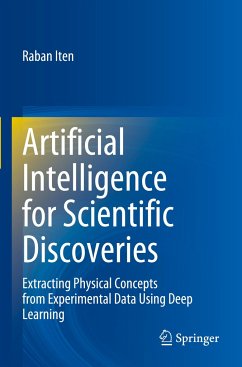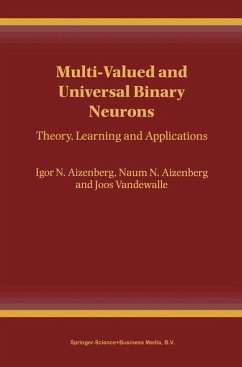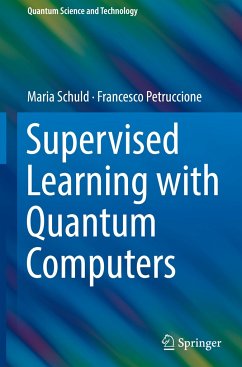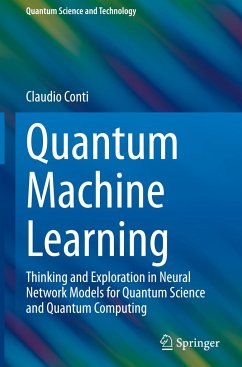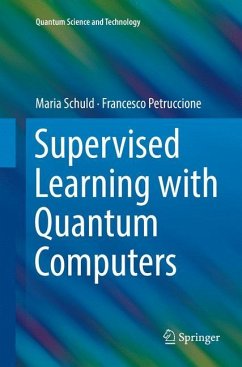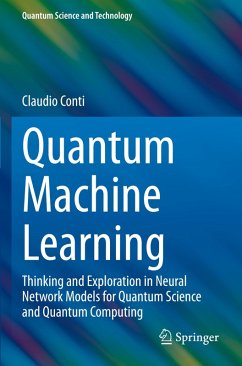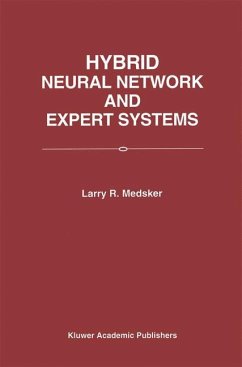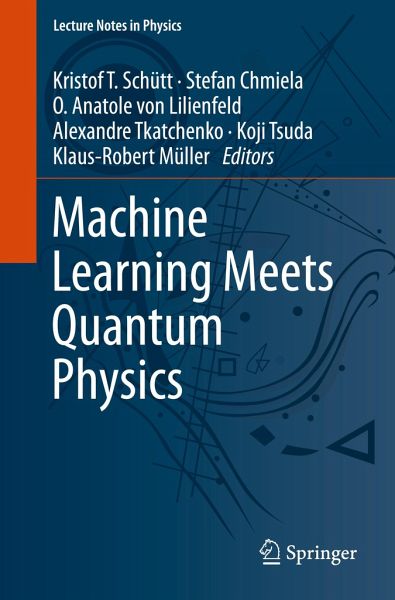
Machine Learning Meets Quantum Physics

PAYBACK Punkte
34 °P sammeln!
Designing molecules and materials with desired properties is an important prerequisite for advancing technology in our modern societies. This requires both the ability to calculate accurate microscopic properties, such as energies, forces and electrostatic multipoles of specific configurations, as well as efficient sampling of potential energy surfaces to obtain corresponding macroscopic properties. Tools that can provide this are accurate first-principles calculations rooted in quantum mechanics, and statistical mechanics, respectively. Unfortunately, they come at a high computational cost th...
Designing molecules and materials with desired properties is an important prerequisite for advancing technology in our modern societies. This requires both the ability to calculate accurate microscopic properties, such as energies, forces and electrostatic multipoles of specific configurations, as well as efficient sampling of potential energy surfaces to obtain corresponding macroscopic properties. Tools that can provide this are accurate first-principles calculations rooted in quantum mechanics, and statistical mechanics, respectively. Unfortunately, they come at a high computational cost that prohibits calculations for large systems and long time-scales, thus presenting a severe bottleneck both for searching the vast chemical compound space and the stupendously many dynamical configurations that a molecule can assume.
To overcome this challenge, recently there have been increased efforts to accelerate quantum simulations with machine learning (ML). This emerging interdisciplinary community encompasses chemists, material scientists, physicists, mathematicians and computer scientists, joining forces to contribute to the exciting hot topic of progressing machine learning and AI for molecules and materials.
The book that has emerged from a series of workshops provides a snapshot of this rapidly developing field. It contains tutorial material explaining the relevant foundations needed in chemistry, physics as well as machine learning to give an easy starting point for interested readers. In addition, a number of research papers defining the current state-of-the-art are included. The book has five parts (Fundamentals, Incorporating Prior Knowledge, Deep Learning of Atomistic Representations, Atomistic Simulations and Discovery and Design), each prefaced by editorial commentary that puts the respective parts into a broader scientific context.
To overcome this challenge, recently there have been increased efforts to accelerate quantum simulations with machine learning (ML). This emerging interdisciplinary community encompasses chemists, material scientists, physicists, mathematicians and computer scientists, joining forces to contribute to the exciting hot topic of progressing machine learning and AI for molecules and materials.
The book that has emerged from a series of workshops provides a snapshot of this rapidly developing field. It contains tutorial material explaining the relevant foundations needed in chemistry, physics as well as machine learning to give an easy starting point for interested readers. In addition, a number of research papers defining the current state-of-the-art are included. The book has five parts (Fundamentals, Incorporating Prior Knowledge, Deep Learning of Atomistic Representations, Atomistic Simulations and Discovery and Design), each prefaced by editorial commentary that puts the respective parts into a broader scientific context.





